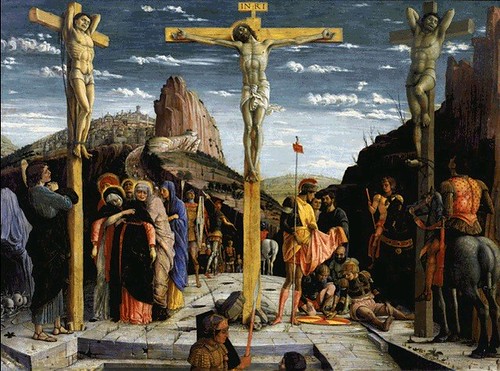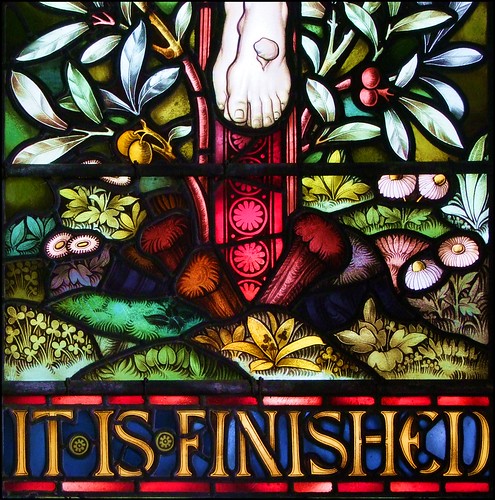
Friday, June 10, 2016
Monday, April 25, 2016
Saturday, April 23, 2016
Friday, April 22, 2016
 SCHEDULE: DISTRICTS IS TOMORROW!
SCHEDULE: DISTRICTS IS TOMORROW!
Key things to remember:

- Wear a clean Quiz Team shirt
- Wear jeans (don't worry, you can change for the ride home)
- Bring your scripture portion
- Bring any study materials you want for the ride down
- Bring $5 for the pizza lunch
- Be at the church by 10:30 AM
See you tomorrow!

Labels:
Are you ready?,
calendar,
districts,
reminder,
schedule
Thursday, April 21, 2016
 THIS WEEK: Review Galatians, Ephesians, Philippians, Colossians, & Philemon
THIS WEEK: Review Galatians, Ephesians, Philippians, Colossians, & Philemon
The next two weeks (April 21 thru April 23), please review all books and chapters from this year.
If you want to review the books online,

If you want to review the books online,
- Click here for Galatians
- Click here for Ephesians
- Click here for Philippians
- Click here for Colossians
- Click here for Philemon
- We're leaving the church at 10:30 AM (please arrive before then!)
- Bring $5 for a pizza lunch at Cresskill
- We'll quiz all afternoon
- You'll have a chance to call your parents on the way home to let them know when we'll be back.

Labels:
calendar,
colossians,
commentary,
ephesians,
galatians,
links,
philemon,
philippians,
review,
schedule,
study
Wednesday, April 20, 2016
 Tonight is our last practice of the season!
Tonight is our last practice of the season!
Tonight is the LAST practice of the 2015-2016 season. This is your last chance to cram before Districts. Take a moment to consider what you know and what you still need to learn for success.


Labels:
Are you ready?,
calendar,
districts,
reminder,
schedule
Tuesday, April 19, 2016
 SCHEDULE: DISTRICTS IS SATURDAY!
SCHEDULE: DISTRICTS IS SATURDAY!
Districts is this Saturday, April 23! Are you ready?

- Is your team shirt clean?
- Do you know where your scripture portion is?
- Are you ready with an outfit that DOES NOT include shorts? (Feel free to change for the ride home.)
- Do you have material to practice on the ride down? (Questions, MP3s of the books, etc.)
See you soon!

Labels:
Are you ready?,
calendar,
districts,
reminder,
schedule
Monday, April 18, 2016
Sunday, April 17, 2016
Saturday, April 16, 2016
Friday, April 15, 2016
Thursday, April 14, 2016
 THIS WEEK: Review Galatians, Ephesians, Philippians, Colossians, & Philemon
THIS WEEK: Review Galatians, Ephesians, Philippians, Colossians, & Philemon
The next two weeks (April 14 thru April 20), please review all books and chapters from this year.
If you want to review the books online,
Study Tip: We've only got a few weeks left until Districts. Now is the time to shore up your knowledge of these essential books, and ensure you are ready to quiz against the other teams. Take some time to identify which weeks you did well and which weeks you did poorly. Study the weak spots and be ready for what's coming!
If you want to review the books online,
- Click here for Galatians
- Click here for Ephesians
- Click here for Philippians
- Click here for Colossians
- Click here for Philemon
Study Tip: We've only got a few weeks left until Districts. Now is the time to shore up your knowledge of these essential books, and ensure you are ready to quiz against the other teams. Take some time to identify which weeks you did well and which weeks you did poorly. Study the weak spots and be ready for what's coming!
Labels:
calendar,
colossians,
commentary,
ephesians,
galatians,
links,
philemon,
philippians,
review,
schedule,
study
Wednesday, April 13, 2016
 SCHEDULE: DISTRICTS IS COMING!
SCHEDULE: DISTRICTS IS COMING!
Tuesday, April 12, 2016
 HOLY WEEK LEFTOVERS: Why do we call Resurrection Sunday by the name "Easter"?
HOLY WEEK LEFTOVERS: Why do we call Resurrection Sunday by the name "Easter"?
Holy Week raises lots of questions worth answering, which we don't always get around to discussing during Holy Week. We'll take a few days this week to look at those questions.
QUESTION 3: Where does the name "Easter" come from?
This is a big question and hard to answer, because language changes so much over time. There are two primary theories for the origin of the word "Easter".
Pagan Origins: Eastre (or Eostre) was a goddess of the Saxon peoples of Northern Europe, associated with Springtime and especially rabbits. (It is believed this is where the idea of the Easter Bunny may have come from, although the fact that rabbits emerge from a hole in the ground also makes them a natural symbol for Jesus emerging from the tomb.) This theory is that a feast to Eastre was held in the Springtime. Christian missionaries did not want to deny their converts a chance to celebrate, so instead of banning the old celebration they replaced the former significance with a celebration of the resurrection of Jesus Christ. The practice of "redeeming" pagan holidays with new Christian significance was quite common in the old Roman Empire.
German Origins: The german word for "resurrection" is "auferstehung"(say it fast, you can get a sense of how it could have morphed into "easter" over centuries of time). Under this theory, the word was first used by early German Christians to refer to the time of Passover, reflecting the fact that Resurrection Sunday would historically be the Sunday after Passover. Over time, the word's use was expanded and expanded as people began to not only note the day on their calendars, but make a celebration out of it. Finally, the word "Easter" eclipsed Passover in the mind of Christian Europe (much of which had never known a Jewish person or read a Bible, so the significance of the old Hebrew holiday was lost). This theory is supported by the fact that Easter first appears as a word in German writings, rather than Saxon ones.
QUESTION 3: Where does the name "Easter" come from?
This is a big question and hard to answer, because language changes so much over time. There are two primary theories for the origin of the word "Easter".
Pagan Origins: Eastre (or Eostre) was a goddess of the Saxon peoples of Northern Europe, associated with Springtime and especially rabbits. (It is believed this is where the idea of the Easter Bunny may have come from, although the fact that rabbits emerge from a hole in the ground also makes them a natural symbol for Jesus emerging from the tomb.) This theory is that a feast to Eastre was held in the Springtime. Christian missionaries did not want to deny their converts a chance to celebrate, so instead of banning the old celebration they replaced the former significance with a celebration of the resurrection of Jesus Christ. The practice of "redeeming" pagan holidays with new Christian significance was quite common in the old Roman Empire.
German Origins: The german word for "resurrection" is "auferstehung"(say it fast, you can get a sense of how it could have morphed into "easter" over centuries of time). Under this theory, the word was first used by early German Christians to refer to the time of Passover, reflecting the fact that Resurrection Sunday would historically be the Sunday after Passover. Over time, the word's use was expanded and expanded as people began to not only note the day on their calendars, but make a celebration out of it. Finally, the word "Easter" eclipsed Passover in the mind of Christian Europe (much of which had never known a Jewish person or read a Bible, so the significance of the old Hebrew holiday was lost). This theory is supported by the fact that Easter first appears as a word in German writings, rather than Saxon ones.
Labels:
auferstehung,
DIDYOUKNOW,
easter,
eastre,
eostre,
germany,
he is risen,
holy week,
leftovers
Monday, April 11, 2016
Sunday, April 10, 2016
Saturday, April 09, 2016
Friday, April 08, 2016
Thursday, April 07, 2016
 THIS WEEK: Study Philemon
THIS WEEK: Study Philemon
The next two weeks (April 7 thru April 13), please study Colossians, Chapter 4.
If you want to read the chapter online, click here.
Click here to listen to audio of the chapter.
If you'd like to read a commentary on the chapter, click here.
Study Tip: This is our last week of new material! Review is easy in some ways, but there is nothing like "new" to engage the mind and keep you interested. Be sure to leverage the beauty of "new" this week as you study. And keep in mind that Philemon is only one chapter long. If you memorize this one chapter, you can tell people have memorized a whole book of the Bible!
If you want to read the chapter online, click here.
Click here to listen to audio of the chapter.
If you'd like to read a commentary on the chapter, click here.
Study Tip: This is our last week of new material! Review is easy in some ways, but there is nothing like "new" to engage the mind and keep you interested. Be sure to leverage the beauty of "new" this week as you study. And keep in mind that Philemon is only one chapter long. If you memorize this one chapter, you can tell people have memorized a whole book of the Bible!
Wednesday, April 06, 2016
 ARE YOU READY? - Colossians 3
ARE YOU READY? - Colossians 3
Are you ready to quiz tonight? Here is a quick self-test you can do to see whether you're prepared or need to do some last-minute cramming!
QUESTION: REFERENCE: According to Colossians 3:11, Christ is what?
QUESTION: 2 PART ANSWER: God's chosen ones are what?
QUESTION: MULTIPLE PART ANSWER: Here there is not what?
QUESTION: Love binds everything together how?
QUESTION: Children, obey your parents in what?
QUESTION: REFERENCE: According to Colossians 3:11, Christ is what?
QUESTION: 2 PART ANSWER: God's chosen ones are what?
QUESTION: MULTIPLE PART ANSWER: Here there is not what?
QUESTION: Love binds everything together how?
QUESTION: Children, obey your parents in what?
Labels:
Are you ready?,
colossians,
Colossians3,
gepcp,
self test,
selftest,
testyourself
Tuesday, April 05, 2016
 HOLY WEEK LEFTOVERS: Was Jesus really in the tomb for 3 days?
HOLY WEEK LEFTOVERS: Was Jesus really in the tomb for 3 days?
Holy Week raises lots of questions worth answering, which we don't always get around to discussing during Holy Week. We'll take a few days this week to look at those questions.
QUESTION 2: Was Jesus really in the tomb for 3 days?
There are big questions and there are little questions, and this is one that people argue over the size of. Many ask, "If Jesus died Friday night and rose Sunday morning, how does that work out to three days?" After all, he was only in the tomb for a full day on Sunday, right?
Nope. First century Jews thought about the calendar differently than moderns do:
QUESTION 2: Was Jesus really in the tomb for 3 days?
There are big questions and there are little questions, and this is one that people argue over the size of. Many ask, "If Jesus died Friday night and rose Sunday morning, how does that work out to three days?" After all, he was only in the tomb for a full day on Sunday, right?
Nope. First century Jews thought about the calendar differently than moderns do:
- Days start at sundown on the Jewish calendar.
- People of the time didn't think in 24 hours days, where 3 days meant "exactly 72 hours". Rather, they thought in terms of day periods. For something to happen "on the third day" was always considered to mean "sometime during the third day". (72 hours later would be "on the fourth day".)
- When Jews of the time spoke about "three days and three nights", partial days were considered sufficient. In Esther 4 and 5, she fasts "for 3 days and 3 nights" but goes to the king "on the third day".
Thus, Jesus being in the tomb for three days was fulfilled by:
- Some time on Friday (Jesus died in the afternoon, before sunset)
- All day on Saturday
- Some time on Sunday (Jesus was seen by the women in the morning)
3 days, even though it was not 72 hours later.
Labels:
3,
3 days,
DIDYOUKNOW,
he is risen,
holy week,
leftovers,
three,
three days
Monday, April 04, 2016
Sunday, April 03, 2016
Saturday, April 02, 2016
Friday, April 01, 2016
 WEEKLY COMIC: April Fools?
WEEKLY COMIC: April Fools?
Labels:
april fools,
comics,
funny,
humor,
miracle,
reverendfun,
water,
wine
Thursday, March 31, 2016
 THIS WEEK: Study Colossians 4
THIS WEEK: Study Colossians 4
The next two weeks (March 31 thru April 6), please study Colossians, Chapter 4.
If you want to read the chapter online, click here.
Click here to listen to audio of the chapter.
If you'd like to read a commentary on the chapter, click here.
Study Tip: Do try to study every chapter the exact same way, no matter what the content? That may be a big mistake. Be sure to think about the kind of chapter you're working with before you study so that you can focus on the right things.
If you want to read the chapter online, click here.
Click here to listen to audio of the chapter.
If you'd like to read a commentary on the chapter, click here.
Study Tip: Do try to study every chapter the exact same way, no matter what the content? That may be a big mistake. Be sure to think about the kind of chapter you're working with before you study so that you can focus on the right things.
Labels:
calendar,
colossians,
Colossians4,
commentary,
links,
schedule,
study
Wednesday, March 30, 2016
Tuesday, March 29, 2016
 HOLY WEEK LEFTOVERS: How do we know Jesus actually rose?
HOLY WEEK LEFTOVERS: How do we know Jesus actually rose?
Holy Week raises lots of questions worth answering, which we don't always get around to discussing during Holy Week. We'll take a few days this week to look at those questions.
QUESTION 1: HOW DO WE KNOW JESUS ACTUALLY ROSE FROM THE DEAD?
Since the very day Jesus rose from the dead, people have been trying to argue it didn't happen. (The gospels actually record an attempted payoff from the Sanhedrin to the tomb guards to claim the disciples had stolen the body.) But there is plentiful evidence that Jesus died and that he rose again!
QUESTION 1: HOW DO WE KNOW JESUS ACTUALLY ROSE FROM THE DEAD?
Since the very day Jesus rose from the dead, people have been trying to argue it didn't happen. (The gospels actually record an attempted payoff from the Sanhedrin to the tomb guards to claim the disciples had stolen the body.) But there is plentiful evidence that Jesus died and that he rose again!
- Jesus Died: The Romans were experts at killing and crucifixion was one of their go-to methods for killing. The gospels even record that the guards at the cross were ready with a backup plan for anyone who hadn't died. They would break their legs, so they couldn't push themselves up to catch a breath. Instead, when they came to Jesus, they saw he was dead. But just to make sure, they thrust a spear into his side. The gospels report "blood and water" flowed, which either indicates that the blood had begun to coagulate inside the body, or that the cardiac sack around the heart had been punctured. Either way, there is no way to survive that.
- Jesus Rose: First century Jews were no fools and were used to Messiahs who didn't deliver what they promised, so it makes little sense to chalk up Jesus's appearances to superstition. Instead, the gospels report repeatedly that there were eyewitnesses to the resurrected Christ. First, he appeared to the women who came to the tomb to care for his body. Second, he appeared to Peter (and John saw the empty tomb). Third, he appeared to two unnamed disciples on the way to Emmaus. Fourth, he appeared to all of the disciples in the upper room, except Thomas. Finally, he appeared to Thomas, as well, and even showed him the scars in his hands, his feet, and his sides. And it was not just the apostles who saw him, but Paul reports in 1 Corinthians 15:6 that over 500 people saw Jesus alive (most of whom were still alive when he wrote for readers to check back with).
- Jesus Changed Lives: Finally, it is worth noting the transformation seen in the disciples after Jesus's resurrection. After the crucifixion, all accounts report they were terrified and hidden away, fearing the Romans or Sanhedrin would come for them next. They feared for their lives, and were ready to run away. But after the resurrection, suddenly they are bold and brash men with no fear for their lives. They preach, they teach, they do miracles, and they eagerly march toward martyrdom.
While we do not have a photograph of the risen Jesus to examine, all of this adds up to a lot of strong evidence that Jesus of Nazareth did indeed rise from the dead.
Labels:
DIDYOUKNOW,
he is risen,
holy week,
leftovers,
resurrection,
rise
Monday, March 28, 2016
 BONUS PHOTO OF THE WEEK: A Quizzer in Israel
BONUS PHOTO OF THE WEEK: A Quizzer in Israel
"A photo of me standing in the remains of the probable hall in which Paul made his defense before Festus and Agrippa (Acts 26)."
Sunday, March 27, 2016
 HOLY WEEK: Resurrection Sunday!
HOLY WEEK: Resurrection Sunday!
1 After the Sabbath, at dawn on the first day of the week, Mary Magdalene and the other Mary went to look at the tomb.
2 There was a violent earthquake, for an angel of the Lord came down from heaven and, going to the tomb, rolled back the stone and sat on it. 3 His appearance was like lightning, and his clothes were white as snow. 4 The guards were so afraid of him that they shook and became like dead men.
5 The angel said to the women, “Do not be afraid, for I know that you are looking for Jesus, who was crucified. 6 He is not here; he has risen, just as he said. Come and see the place where he lay. 7 Then go quickly and tell his disciples: ‘He has risen from the dead and is going ahead of you into Galilee. There you will see him.’ Now I have told you.”
8 So the women hurried away from the tomb, afraid yet filled with joy, and ran to tell his disciples. 9 Suddenly Jesus met them. “Greetings,” he said. They came to him, clasped his feet and worshiped him. 10 Then Jesus said to them, “Do not be afraid. Go and tell my brothers to go to Galilee; there they will see me.”
Labels:
celebration,
easter,
holiday,
holy week,
resurrection,
sunday
Saturday, March 26, 2016
 HOLY WEEK: Holy Saturday
HOLY WEEK: Holy Saturday
It is typical to think of Saturday as an "off day" for Holy Week, but actually quite a lot was happening. Jesus was taken down from the cross and his body was wrapped in fine cloths and spices. Then Nicodemus and Joseph of Arimathea - both prominent men who had much to lose by declaring they were followers of Jesus - came forward to claim the body and place it into a rich tomb. Finally, the Sanhedrin - aware of Jesus's prophesies about resurrection - convinced Pilate to seal the tomb and guard it to protect against tampering.
Friday, March 25, 2016
 HOLY WEEK: Good Friday
HOLY WEEK: Good Friday
Good Friday is the holiest day on the Christian calendar, because it is the day Jesus died and took on all of our sins. Without his death, we would still be in our sins and under judgement for all eternity. Salvation, both Old and New Testament, is based on faith in the saving work of God thru Christ.
It was a long and difficult day for Jesus. He not only died, but went thru multiple trials before both Jewish and Gentile, both local and imperial authorities. He was offered a way out by Pilate, but the crowds chose a known murderer instead. Jesus was then tortured, and forced to carry his own cross (until he collapsed and a bystander in the crowd was drafted to carry it for him). Finally, he was nailed to the cross and after blessing nearly all those around him, died.
It is important to note how Jesus died. He was not killed, but instead scripture says he "gave up his spirit." God chose to die, because his life could not be taken from him.
It was a long and difficult day for Jesus. He not only died, but went thru multiple trials before both Jewish and Gentile, both local and imperial authorities. He was offered a way out by Pilate, but the crowds chose a known murderer instead. Jesus was then tortured, and forced to carry his own cross (until he collapsed and a bystander in the crowd was drafted to carry it for him). Finally, he was nailed to the cross and after blessing nearly all those around him, died.
It is important to note how Jesus died. He was not killed, but instead scripture says he "gave up his spirit." God chose to die, because his life could not be taken from him.
Labels:
crucifiction,
crucifixion,
easter,
friday,
good,
good friday
Thursday, March 24, 2016
 HOLY WEEK: Maundy Thursday
HOLY WEEK: Maundy Thursday
Maundy Thursday is the most solemn and somber of days in the Christian calendar. It marks the day that Jesus gave the Last Supper, prayed in the Garden of Gethsemane, and was betrayed by Judas.
The term "Maundy" is a reference back to the Latin "mandatum" - i.e. "command" - which comes from John 13:34-35: "A new commandment I give to you, that you love one another: just as I have loved you, you also are to love one another. By this all people will know that you are my disciples, if you have love for one another.”"
Why is this day more somber than "Good Friday" on which Jesus actually died? Because that day is made "good" by the redemption accomplished by his death on the cross. Thursday, on the other hand, is just one difficult moment for Jesus after another with no relief in sight. In light of this, it is traditional for Maundy Thursday services to end in silence, with people leaving the church without talking.
The term "Maundy" is a reference back to the Latin "mandatum" - i.e. "command" - which comes from John 13:34-35: "A new commandment I give to you, that you love one another: just as I have loved you, you also are to love one another. By this all people will know that you are my disciples, if you have love for one another.”"
Why is this day more somber than "Good Friday" on which Jesus actually died? Because that day is made "good" by the redemption accomplished by his death on the cross. Thursday, on the other hand, is just one difficult moment for Jesus after another with no relief in sight. In light of this, it is traditional for Maundy Thursday services to end in silence, with people leaving the church without talking.
Labels:
betrayal,
easter,
holy week,
judas,
last supper,
maundy,
maundy thursday
Wednesday, March 23, 2016
 HOLY WEEK: Silent Wednesday
HOLY WEEK: Silent Wednesday
Nothing is recorded in the gospels about Wednesday of Holy Week. This certainly doesn't say "nothing" happened, but scholars speculate Jesus and his disciples may have spent the day resting up for the Passover celebration in Bethany with Mary, Martha, and Lazarus.
Tuesday, March 22, 2016
 HOLY WEEK: The Olivet Discourse & Judas In Negotiations
HOLY WEEK: The Olivet Discourse & Judas In Negotiations
Tuesday of Holy Week was the day Jesus went up on the Mount of Olives to give the "Olivet Discourse" - a long sermon focussed around prophesies of the coming destruction of Jerusalem and ultimately the End Times. It is also the day that Judas negotiated the price to betray Jesus (Matthew 24:14-16)
Labels:
easter,
holy week,
judas,
judas kiss,
musical interlude,
olivet discourse,
petra,
video,
youtube
Monday, March 21, 2016
 HOLY WEEK: Clearing of the Temple
HOLY WEEK: Clearing of the Temple
On Monday of Holy Week, the major event was Jesus's cleansing of the Temple, recorded in all four gospels.
And they came to Jerusalem. And he entered the temple and began to drive out those who sold and those who bought in the temple, and he overturned the tables of the money-changers and the seats of those who sold pigeons. And he would not allow anyone to carry anything through the temple. And he was teaching them and saying to them, “Is it not written, ‘My house shall be called a house of prayer for all the nations’? But you have made it a den of robbers.” And the chief priests and the scribes heard it and were seeking a way to destroy him, for they feared him, because all the crowd was astonished at his teaching. And when evening came they went out of the city. (Mark 11:15-19)
Sunday, March 20, 2016
Saturday, March 19, 2016
Friday, March 18, 2016
 WEEKLY COMIC: I Scream for Holy Week
WEEKLY COMIC: I Scream for Holy Week
Labels:
comic,
comics,
fun,
funny,
humor,
reverend fun,
reverendfun
Thursday, March 17, 2016
 THIS WEEK: Study Colossians 3
THIS WEEK: Study Colossians 3
The next two weeks (March 17 thru March 30), please study Colossians, Chapter 3.
If you want to read the chapter online, click here.
Click here to listen to audio of the chapter.
If you'd like to read a commentary on the chapter, click here.
Study Tip: "Off weeks" can be difficult for maintaining the momentum of studying. But Easter is unusual in that we spend the week focussing intensely on scripture. Use this time to deepen your understanding of our study text by relating it to the texts being talked about for Holy Week.
If you want to read the chapter online, click here.
Click here to listen to audio of the chapter.
If you'd like to read a commentary on the chapter, click here.
Study Tip: "Off weeks" can be difficult for maintaining the momentum of studying. But Easter is unusual in that we spend the week focussing intensely on scripture. Use this time to deepen your understanding of our study text by relating it to the texts being talked about for Holy Week.
Labels:
calendar,
colossians,
Colossians3,
commentary,
links,
schedule,
study
Wednesday, March 16, 2016
Tuesday, March 15, 2016
 Should we celebrate St. Patrick?
Should we celebrate St. Patrick?
This coming Thursday will be St. Patrick's Day. For a sincere Christian, this can be a confusing time. In theory, it is a celebration of a particular Christian man who ministered in Ireland. But it has become - in American usage - simply a time to celebrate Irish culture. And among some, it has become little more than an excuse to drink alcohol to excess and carouse. Is this a holiday we should observe at all?
Well, luckily, much is known about Patrick, and it turns out he was a true follower of Jesus and a powerful evangelist. This is a man whose life is worth remembering!
Well, luckily, much is known about Patrick, and it turns out he was a true follower of Jesus and a powerful evangelist. This is a man whose life is worth remembering!
As a boy of fourteen or so, he was captured during a raiding party and taken to Ireland as a slave to herd and tend sheep. Ireland at this time was a land of Druids and pagans. He learned the language and practices of the people who held him...Patrick's captivity lasted until he was twenty, when he escaped after having a dream from God in which he was told to leave Ireland by going to the coast. There he found some sailors who took him back to Britian, where he reunited with his family.Remembering great men of the Faith is important, so long as we always keep our eyes on Jesus, as they did.
He had another dream in which the people of Ireland were calling out to him "We beg you, holy youth, to come and walk among us once more."
Patrick began preaching the Gospel throughout Ireland, converting many. He and his disciples preached and converted thousands and began building churches all over the country. Kings, their families, and entire kingdoms converted to Christianity when hearing Patrick's message.
Monday, March 14, 2016
Sunday, March 13, 2016
Saturday, March 12, 2016
Friday, March 11, 2016
Thursday, March 10, 2016
 THIS WEEK: Study Colossians 2
THIS WEEK: Study Colossians 2
This week (March 10 thru March 16), please study Colossians, Chapter 2.
If you want to read the chapter online, click here.
Click here to listen to audio of the chapter.
If you'd like to read a commentary on the chapter, click here.
Study Tip: Do try to study every chapter the exact same way, no matter what the content? That may be a big mistake. Some chapters are heavy on doctrine which lend themselves to studying keywords, while others are heavy on practical application which lend themselves on lists and sequence studies. Be sure to think about the kind of chapter you're working with before you study so that you can focus on the right things.
If you want to read the chapter online, click here.
Click here to listen to audio of the chapter.
If you'd like to read a commentary on the chapter, click here.
Study Tip: Do try to study every chapter the exact same way, no matter what the content? That may be a big mistake. Some chapters are heavy on doctrine which lend themselves to studying keywords, while others are heavy on practical application which lend themselves on lists and sequence studies. Be sure to think about the kind of chapter you're working with before you study so that you can focus on the right things.
Labels:
calendar,
colossians,
Colossians2,
commentary,
links,
schedule,
study
Wednesday, March 09, 2016
 ARE YOU READY? - Colossians 1
ARE YOU READY? - Colossians 1
Are you ready to quiz tonight? Here is a quick self-test you can do to see whether you're prepared or need to do some last-minute cramming!
QUESTION: REFERENCE: According to Colossians 1:1-2, Paul and Timothy, to whom?
QUESTION: 2 PART ANSWER: In the whole world it is what?
QUESTION: Bearing fruit in every what?
QUESTION: MULTIPLE PART ANSWER: By him what things were created?
QUESTION: FINISH THE VERSE: "And he is before..."
QUESTION: The riches of glory of this mystery is what?
QUESTION: REFERENCE: According to Colossians 1:1-2, Paul and Timothy, to whom?
QUESTION: 2 PART ANSWER: In the whole world it is what?
QUESTION: Bearing fruit in every what?
QUESTION: MULTIPLE PART ANSWER: By him what things were created?
QUESTION: FINISH THE VERSE: "And he is before..."
QUESTION: The riches of glory of this mystery is what?
Labels:
Are you ready?,
colossians,
Colossians1,
gepcp,
self test,
selftest,
testyourself
Subscribe to:
Comments (Atom)
 Looking back on 30 years of Trumbull Bible Quizzing
Looking back on 30 years of Trumbull Bible Quizzing
 TRUMBULL WINS FIRST PLACE AT DISTRICTS!
TRUMBULL WINS FIRST PLACE AT DISTRICTS!




















_Vermeer_-_Christ_in_the_House_of_Martha_and_Mary_-_Google_Art_Project.jpg)










